- הלוחמים 53, חולון
- 1800-800-552
- info@dolevltd.co.il
Since 1992, we have provided cost-effective, technology-based solutions to problems regarding electric and magnetic fields (EMF). Our service offerings include commercial and residential EMF testing and mitigation, exposure assessment surveys, EMI (electromagnetic interference) investigations, land use planning analysis, EMF consulting services, and all types of EMF inspection and abatement.

Our active magnetic shielding systems are used primarily for reducing powerline magnetic fields. They are effective for both transmission and distribution lines, overhead or underground. Within a defined area, the magnetic field can often be reduced to a very low level. While passive shielding using metal plates is commonly used for single rooms, active shielding is usually the only practical approach to power line field mitigation at the whole-building level. Similar technology is commonly used for room-level field reduction for scanning electron microscopes (SEMs) and other electron beam devices, but our work is limited to wide area, building level applications. Our systems are currently deployed effectively in schools, office buildings, research facilities, and electric power generation plants throughout the U.S., Canada, Israel, Sweden, and Switzerland.
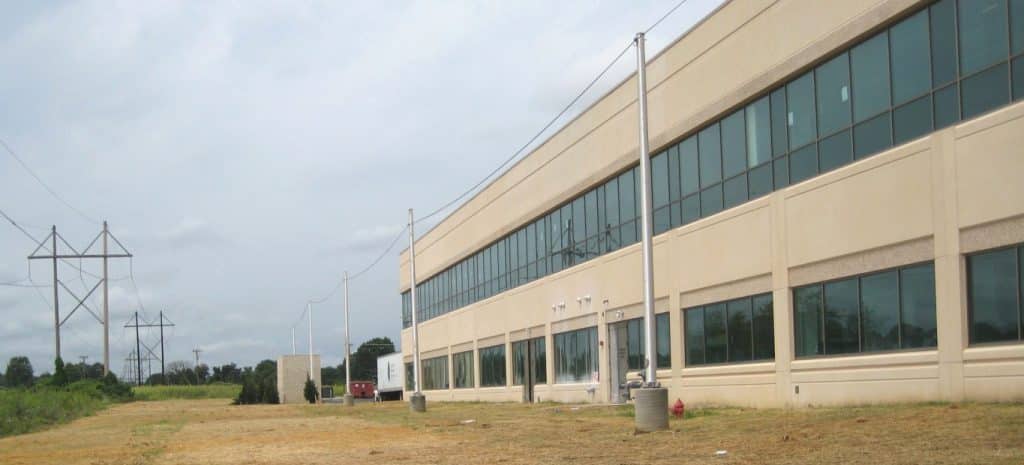
A magnetic field can be thought of as a force that has both strength and direction. If it is met with an equal force of exactly opposite direction, the forces will cancel and the net force will be zero. This is the basic principle of active cancellation. Fundamental principles of physics are applied in the real world to solve a problem. Of course, this is far easier said than done because the strength of a magnetic field often varies greatly across a given area, and the invisible lines of magnetic flux that constitute a magnetic field are often at inconvenient angles relative to the earth plane. If the angle of our counterfield does not closely match the angle of the undesired field, it does not matter how much power is pumped into the system – it will not achieve the desired result. Adapting this fundamental physical concept to each set of unique site conditions is the focus of our design efforts.
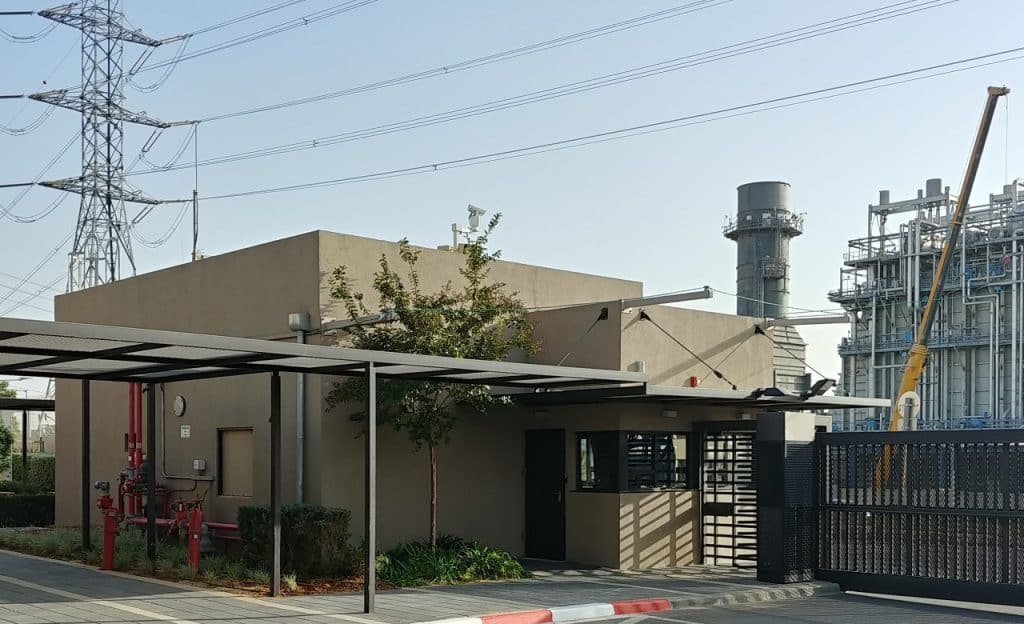
Active shielding systems consist of equipment and sensors inside a building, and a network of cable loops outside the building. The equipment monitors the magnetic field and drives a current through the outside cable network to produce the counterfield. The system tracks the power line field and instantaneously adjusts to compensate for changes that normally occur due to load variation on the line. In large commercial or school applications, our systems can supply virtually unlimited power to handle high field levels and peak load periods. Our control units feature adjustable phase compensation for improved stability and shielding percentage, and now have fault monitoring and alarm capability. In the event of damage to the outside cable network, or failure of a system power amplifier, an audible and visual alert is initiated. This alarm status can be integrated into a building environmental monitoring system for centralized condition reporting.
In the most favorable cases, the external cable network can be buried underground where it is obscured from view. In many other cases, above-ground components such as poles and cables are required. We strive to harmonize the visual aesthetics of the design with the outdoor environment and architectural style prevailing at the site. For example, when poles are required to support an overhead cable, the client could select textured fiberglass composite lighting poles, and even install lights or security cameras on them if desired.
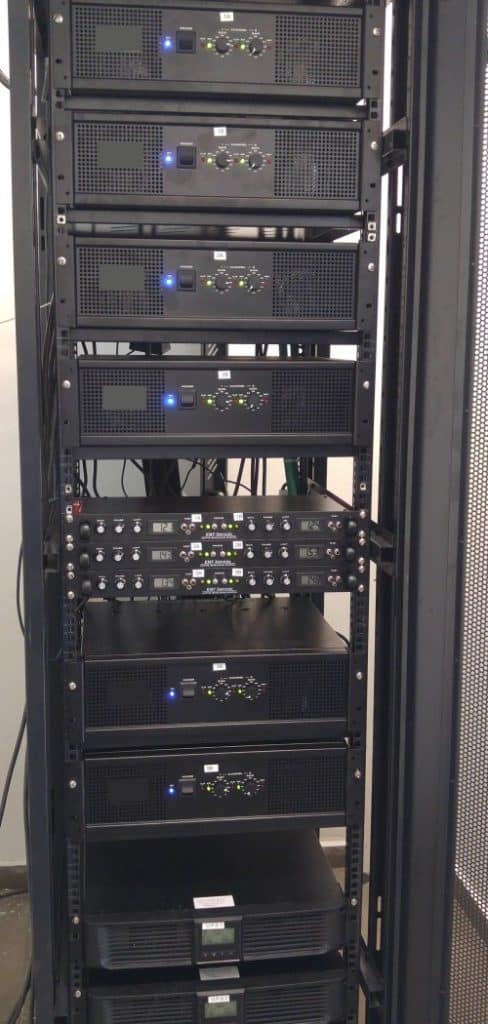
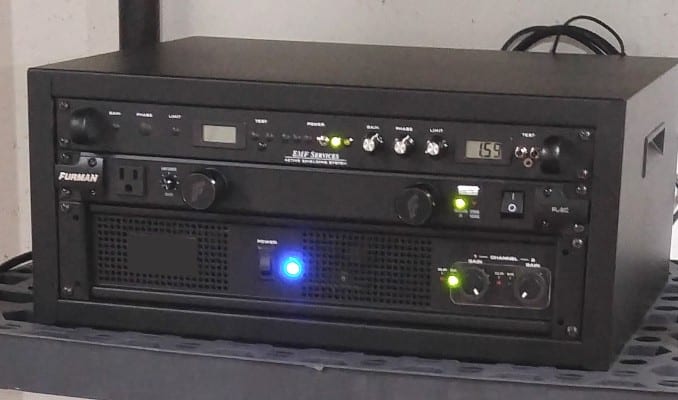
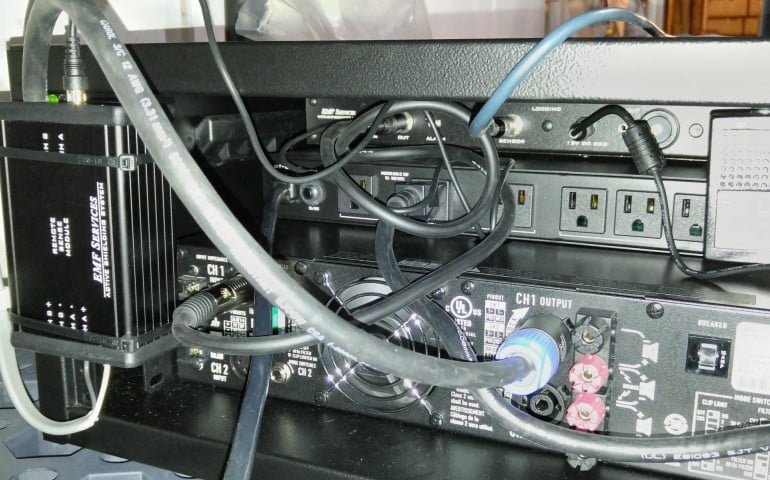
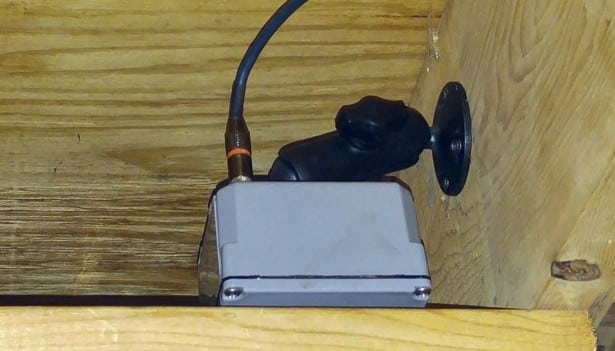
For any active cancellation / active shielding system, the challenge to achieving good performance is design of the cable loop network that produces the counter field. This is completely unique to each job. The specialized cancellation equipment is an essential element, but it is secondary to loop design. Virtually all of our cable networks are designed through computer modeling. This permits an accurate estimate of performance prior to building a system, and defines precisely optimized locations for cables and poles for final construction.
EMF Services has performed pioneering work to develop field projection arrays which eliminate the need to surround the treated area with a cable loop, as was the case with early systems. The cable networks are now typically interposed between the power line and the treated area. We have also addressed issues of strong field gradients, inductive delay, elliptical polarization, and flux angles that shift with power line load, all of which in the past have limited effective deployment of active EMF cancellation on a wide scale. This is now a mature technology, and can represent a viable solution for powerline magnetic field reduction in cases where no other alternatives exist.
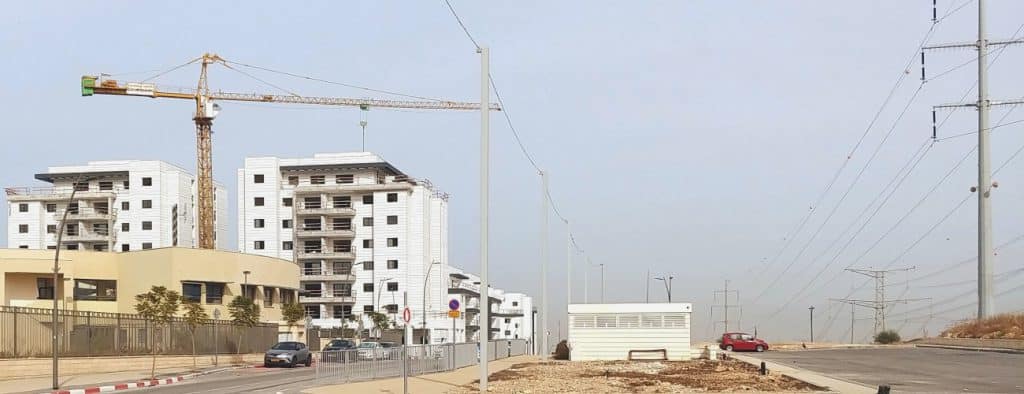
The primary limitation to deployment of such a system is inadequate free space surrounding the area where field reduction is desired. To achieve acceptable performance, the outside loop network cables must be separated sufficiently from the building or treated area. And of course, they must be installed completely on the client’s property, and at the required distance from any overhead power line.
In many cases, the field with a system operating is elevated over pre-existing ambient levels very near the outside cables, requiring a buffer zone, usually between the power line and the building. This is seldom a problem in a commercial setting, but can mean the loss of use of part of the yard in residential applications. The practical import of this is that a house along a typical residential street with close neighbors on each side is not a good candidate for an active shielding system. Reducing the field in your house would increase the field in the neighbors’ houses, something we cannot do.
Another limitation concerns unusual power line field conditions. Most things can be dealt with, but some conditions are so severe that the required system would be so complex and expensive as to be impractical. The most notable example is a power line with only three wires arranged in a triangle, as contrasted with a typical power line that has the conductors arranged vertically or horizontally. This example represents extreme elliptical field polarization.
A preliminary determination of the applicability of active magnetic shielding for your location can often be made from a quick look at the property address in an online mapping service like Google Maps. Otherwise, a review of measurement data, photos, and a sketch showing building and lot dimensions is needed. Some cases involving multiple power lines are so complex that a site visit, and possibly data recording over a multi-day period, is required to reach a conclusion. About 50% of residential cases that initially present can be ruled out in the course of a quick phone call, usually due to inadequate space on the property to install a system.
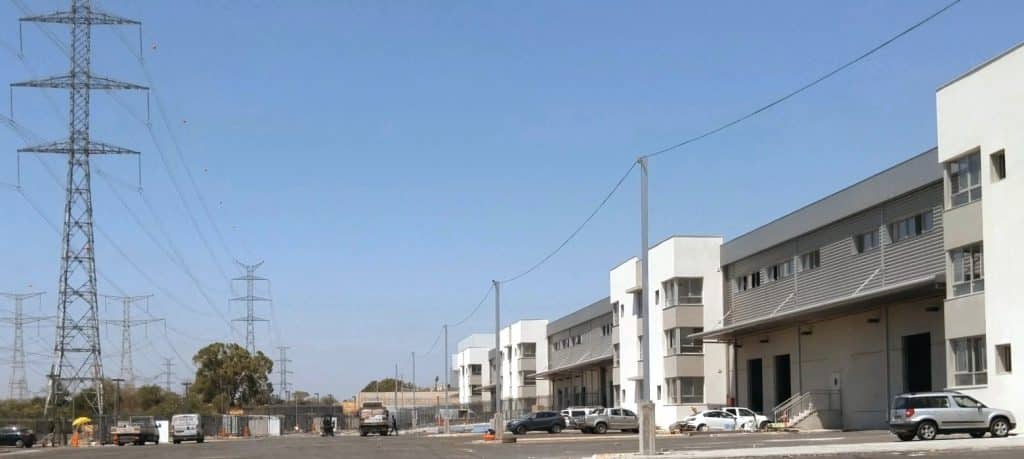
Typical costs for a residential system are in the $15,000 to $40,000 range, although lower and higher numbers are possible. Systems for schools or commercial buildings can run from $40,000 to $250,000 or more, depending on size and system complexity. This is not a packaged system that can be purchased and installed by the customer, regardless of expertise. Each application is unique because field conditions and property layout vary widely. Therefore, all systems are custom designed to match the field conditions at the site, and installed by local contractors under our direct supervision.
Significant misconceptions exist about the true nature of active magnetic shielding (active cancellation) and its use as a field reduction modality. This is partly because magnetic field remediation techniques are poorly understood by many people, and partly because, until recent years, active shielding has seen limited use outside the laboratory environment. The problem is exacerbated by the availability of outrageous products on the consumer market which claim to cancel EMF through various unexplained means, but which in reality do nothing at all. It is not possible to create a magic bubble of coherence around your property, or send a harmonious flow of life enhancing energy throughout the building, just by plugging a device into an electrical outlet.
There are a few individuals operating in the public sphere who purport to be specialists in electromagnetic remediation, and who sometimes advise against the use of active shielding for reasons that are not fully clear. One person says that he “doesn’t believe” it’s a good idea. Another says he thinks it is “against best practice” due to having so many fields around. At the best, this is uninformed opinion. What one thinks, feels, or believes may have great value in a different field, but not so much in the discussion of a scientific principle, and this is very basic science.
When two magnetic fields of equal magnitude and opposite phase are superimposed, they annihilate each other, within that space where the equal and opposite condition exists. To the extent that we can achieve equal and opposite status, the fields do effectively cancel and cease to exist. They are, however, increased at another location of our choice where they pose less consequence. From this perspective, active shielding can be considered a field relocation system.
The gaussmeter used to assess shielding system performance does not “lie” and it is not “missing something.” We are using a narrow bandwidth system with linear power amplifiers to generate the counterfield. It is simply a mirror image of the undesired powerline field. There are no extraneous or spurious frequency components generated. Observation of the residual (post cancellation) magnetic field on an oscilloscope would confirm this, as would measurement with a wideband gaussmeter. Our system is NOT completely analogous to active acoustic noise cancellation, and inferences drawn from that technology are not applicable here. The field reduction with our system is real, measurable, and indisputable. If there are adverse effects resulting from a high magnetic field, then reducing that magnetic field will reduce those effects. Simple as that.
Within the context of this discussion, the term “field cancellation” is sometimes taken to mean complete elimination, but this is never achieved in actual practice. Rather, shielding efficiencies of 65% to 95% are typical. From this perspective, the term “active magnetic shielding” is more appropriate, although the terms are used interchangeably.
